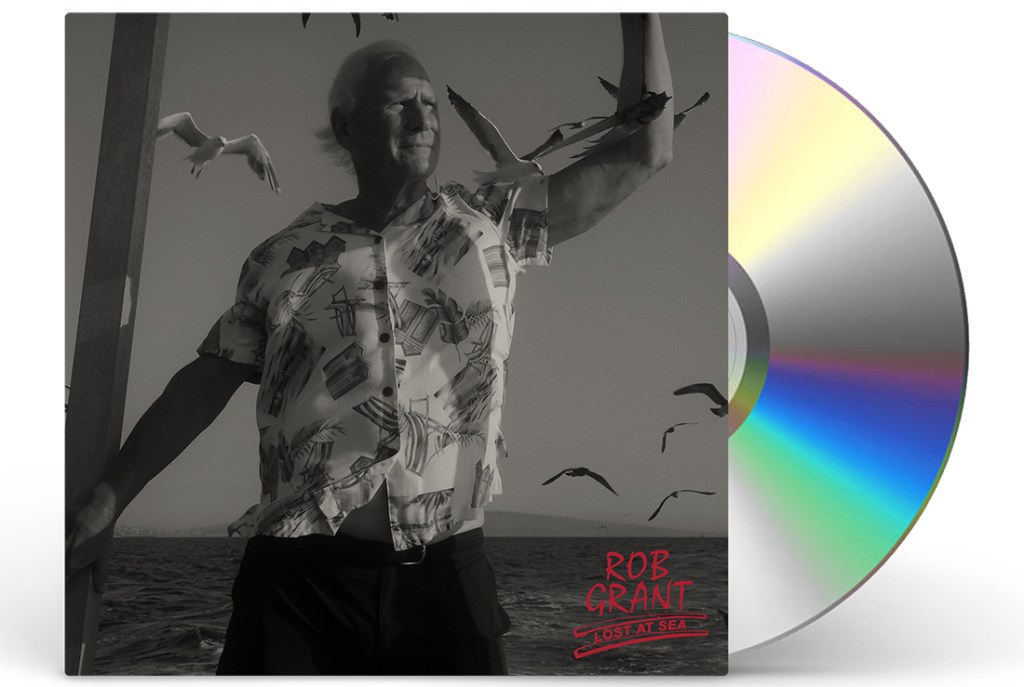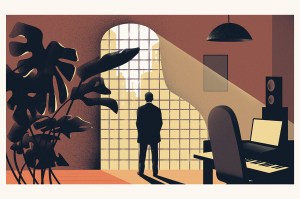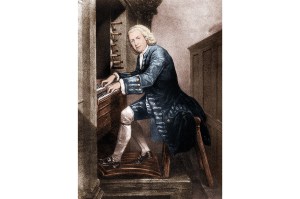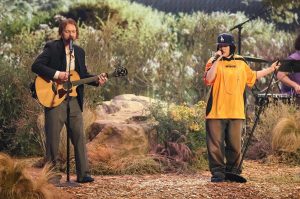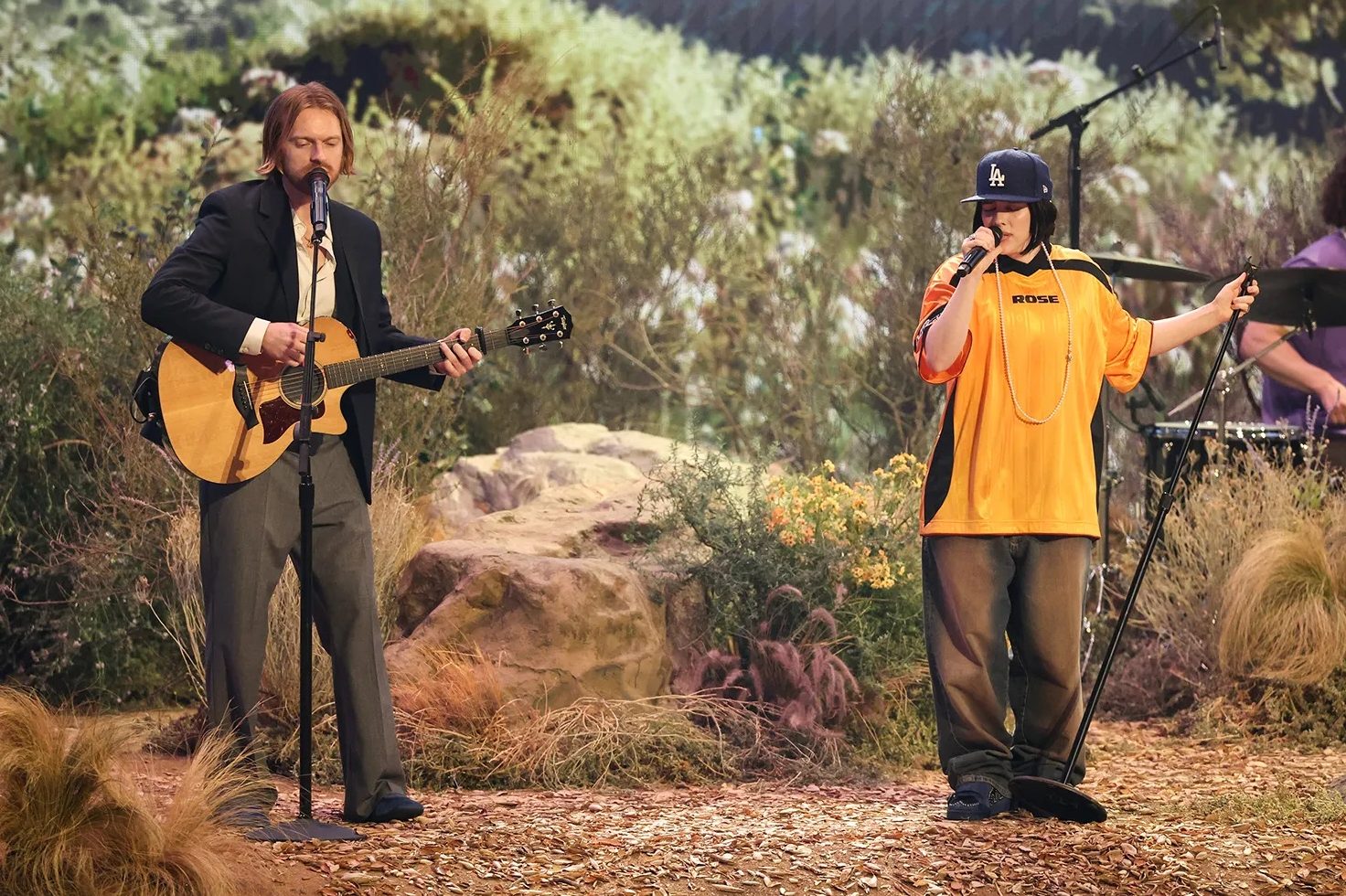Rob Grant releases his debut album, Lost at Sea, this month. A sixty-nine-year-old millionaire and former ad man, furniture exec and domain developer, Grant has made a record of ambient, ocean-themed piano doodles glorying in titles such as “In the Dying Light of Day: Requiem for Mother Earth,” “A Delicate Mist Surrounds Me” and “The Mermaids’ Lullaby.”
Not incidentally, he is also the father of one of the world’s biggest (and best) alt-pop stars, Lana Del Rey. The title track features his daughter’s unmistakable contralto, while her name is emblazoned on the front cover. Father’s Day is just around the corner, and Del Rey has delivered a pearl of a present for Pappy: his very own album.
We hear plenty these days about “nepo babies” — those privileged spawn for whom the gateway to stardom is always unlocked — but let’s not forget the lesser-spotted nepo daddy. Grizzled gray-beards who have harbored delusional musical ambitions since their teens, they’re as hungry as any X Factor wannabe when a later-life, fame-adjacent break arises.
It’s unlikely that Decca would have taken a punt on Grant were he not Il Papa Del Rey
Grant has been hustling for decades. With a fancy to become a country-music star, when Del Rey was still a tot he sauntered to Nashville hawking a song called “Big Bubba,” which failed to cut the mustard. Now that his daughter has prized open the window of opportunity, he has reinvented himself as a free-flowing auteur. The music on Lost at Sea is pleasant enough — the title track is lovely — but it’s unlikely that Decca, which also releases music by Jeff Goldblum, would have taken a punt on a sixtysomething’s drifting soundscapes were he not Il Papa Del Rey; or that producer to the Gods (and Goddesses), Jack Antonoff, would also have clambered on board.
Grant, to his credit, is leaning into the absurdity of the whole thing. He refers to himself on social media as “Robster” and is already flogging “Nepo Daddy” merch online.
In any case, he has some way to go to catch Mitch Winehouse. The taxi-driving father of Amy, and a cockney roustabout straight out of central casting, Mitch is undisputed King of the Nepo Daddies. On the back of his daughter’s fame, he eagerly pitched himself as a finger-clicking, ersatz Sinatra. He released an album, Rush of Love, on which she featured, and has made others since her untimely death in 2011. He has crooned and swung at Ronnie Scott’s, the Royal Albert Hall and the Blue Note in New York. (It’s not all bad news: the proceeds go to the Amy Winehouse Foundation for disadvantaged young people.)
There is a more wholesome side to the father-child musical dynamic, one where stars make room for dads who made a living as jobbing musicians without ever quite ascending to household-name status. Ross MacManus, big band trumpeter in the Joe Loss Orchestra and sometime solo singer “Day Costello,” was the father of Declan MacManus, better known as Elvis Costello. In the 1970s, MacManus Senior wrote the music and sang the R. White’s Lemonade TV advertising theme “Secret Lemonade Drinker,” on which his son added backing vocals — the public’s first widespread exposure to Costello’s distinctive pipes. Ross later played trumpet on a couple of Costello obscurities — “A Town Called Big Nothing” and “Invasion Hit Parade” — and, until his death in 2011, was the first person to hear each new Costello album.
Prince’s father was John L. Nelson, a jazz pianist who fronted the Prince Rogers Trio in post-war Minneapolis; the Purple One was named after his dad’s stage alter ego. Despite an uneasy relationship, they co-wrote several songs together, including “Paisley Park,” “Computer Blue” and “Under the Cherry Moon.” The father of Beck, David Campbell, is a renowned composer and arranger, whose name you can find on the back of countless classic albums by Leonard Cohen, Bob Dylan, Paul McCartney, Carole King and Marvin Gaye. He has worked extensively with his son, most productively on Sea Change and Morning Phase.
The dynamic is not always quite so harmonious. Roistering folk adventurer John Martyn was the child of two (quickly divorced) light-entertainment singers, known professionally as Betty Benson and Thomas Paterson. Martyn once told me his Gilbert & Sullivan-singing parents thought he was a “trickster” because he manipulated his voice with slurs and sibilance. In later life, deep in his cups and clad in tweeds and deer stalker, father was seen to berate son midway through a concert in Glasgow, shouting up to the stage that he was going to the pub and demanding to know why his son had changed his name from Iain McGeachy to John Martyn.
They mess you up, your mum and dad. Some children have the good grace to forgive. You hope Rob Grant is grateful for his shot at being a nepo daddy.
This article was originally published in The Spectator’s UK magazine. Subscribe to the World edition here.



